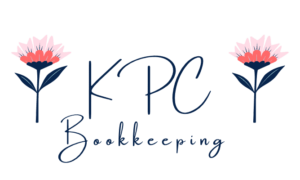Okay, I’ve told you before that it’s TOTALLY okay to do your bookkeeping in a spreadsheet at the beginning of your small business owner journey. But sooner or later, you’re going to want a more robust software that can run the kind of reports that will help you make stellar decisions about your business. And here are some of the pros and cons to each.
But today we’re going to talk about WHEN you’re ready to make that move, and how to choose the right accounting software for your business. There are a lot of choices out there, and trying to find the perfect fit can be overwhelming. However, by understanding your business’s unique needs and considering key factors, you can make an informed decision that sets your company up for success.
Assess Your Business Needs: Before diving into the world of accounting software, take a step back and assess your business requirements. Consider factors such as the size of your business, the complexity of your financial transactions, the number of users who will need access, and any specific features or functionalities you may require.
Identify Must-Have Features: Make a list of essential features that your accounting software must have to meet your business needs. This could include invoicing, expense tracking, payroll management, inventory management, financial reporting, and tax preparation capabilities. Prioritize these features based on their importance to your business operations.
Consider Scalability: Choose accounting software that can grow with your business. Whether you’re a small startup or a rapidly expanding enterprise, scalability is crucial. Opt for software that offers flexible pricing plans and the ability to add or remove features as your business evolves.
Ensure Compatibility: Ensure that the accounting software you choose integrates seamlessly with other tools and systems your business uses. Whether it’s your CRM software, e-commerce platform, or bank accounts, compatibility is key to streamlining your workflow and minimizing manual data entry.
Evaluate User-Friendliness: User-friendliness is paramount, especially if you or your team members are not accounting experts. Look for software with an intuitive interface, easy navigation, and robust customer support to assist with any questions or issues that may arise.
Review Security Measures: Protecting your financial data is critical. Choose accounting software that employs stringent security measures such as data encryption, regular backups, and multi-factor authentication to safeguard sensitive information from cyber threats and unauthorized access.
Compare Pricing Plans: Carefully review pricing plans and consider your budget constraints. Look beyond the initial cost and consider factors such as scalability, additional fees for add-on features or support, and any long-term contracts or commitments required.
Read Reviews and Testimonials: Take the time to research and read reviews from other businesses in your industry or similar size. Pay attention to both positive and negative feedback to gain insights into the software’s strengths and weaknesses and how it aligns with your business needs.
Request Demos and Trials: Don’t hesitate to request demos or take advantage of free trials offered by accounting software providers. This hands-on experience will allow you to explore the software’s features, functionality, and ease of use firsthand before making a commitment.
Seek Expert Advice: If you’re still unsure about which accounting software is right for your business, don’t hesitate to seek advice from accounting professionals or consultants. They can offer valuable insights and recommendations based on their expertise and experience working with similar businesses.
And if all else fails; if it all seems too much and you just want someone to take over for you, schedule a Discovery Call with me to see if I would be a good fit for your needs!
